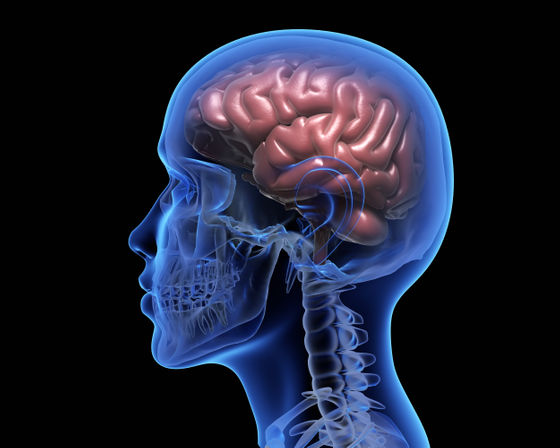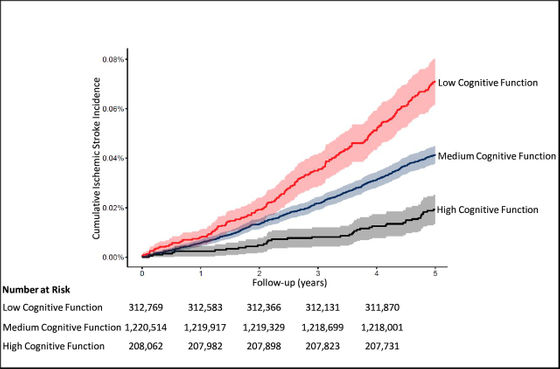People with low intelligence in their teens have a 228% higher risk of stroke in later life

A study has found that people with lower intelligence in their teens are three times more likely to suffer a stroke by age 50 than their more intelligent counterparts. With an increasing number of people suffering strokes at a young age and living with disabilities for the rest of their lives, researchers say early intervention for individuals with lower intelligence is essential.
Cognitive function in adolescence and the risk of early-onset stroke | Journal of Epidemiology & Community Health
https://jech.bmj.com/content/early/2024/05/23/jech-2024-222114
It is well known that people who suffer from stroke suffer from cognitive impairment and dementia, but the effect of poor cognitive function on stroke risk is less known. Previous studies have shown that poor cognitive function in adolescents is associated with type 2 diabetes and heart disease, but there are few studies on the association with stroke, and the results are mixed and inconsistent.
To investigate the relationship between cognitive function in adolescents and early-onset stroke, a research team led by Aya Bardugo of the Hebrew University of Jerusalem in Israel analyzed intelligence and stroke risk in Israeli young people.
Military service is compulsory for both men and women in Israel, and before joining the army, Israeli youth undergo aptitude tests that measure weight, blood pressure, and general health, as well as intellectual abilities such as the ability to understand and carry out verbal instructions, mathematical ability, and concentration.
The study included 1,741,345 men and women aged 16 to 20 years who were examined between 1987 and 2012, of whom 42% were women.

by
The research team classified the participants into nine categories based on their cognitive function test scores. Of the total, 18% were at low level (1-3), 70% at medium level (4-7), and 12% at high level (8-9).
Additionally, people with lower levels of cognitive function were more likely to be overweight or obese (17% vs. 12%), less likely to have graduated from high school (82% vs. 99%), and more likely to live in socially and economically disadvantaged areas (35% vs. 19%) than those with higher levels of cognitive function -- all unfavorable factors that have been linked to increased cardiovascular disease risk.
The researchers then matched the participants' cognitive function with a stroke database and found that compared with people with high cognitive function, those with intermediate cognitive function had a 78% higher risk of having a stroke by age 50, and those with low cognitive function had a 168% higher risk.
The risk of stroke was higher the lower the cognitive test scores, with risk increasing by 33% for every grade point decrease on a nine-point scale.

In addition, strokes can be classified into hemorrhagic strokes, in which bleeding occurs from blood vessels in the brain, and ischemic strokes, in which blood vessels in the brain become blocked, commonly known as cerebral infarction. Of the 767 cases of ischemic stroke, 41% occurred in people under the age of 40.
People with intermediate and low cognitive function had a two-fold (96% increase) and three-fold (228% increase) increased risk of ischemic stroke compared with people with high cognitive function.
The graph below shows the incidence of ischemic stroke during the follow-up period for people with low (red line), medium (blue line), and high (black line) cognitive function. We can see that people with lower cognitive function have an increased risk of developing a stroke over time.

This is an observational study and does not prove causation. In addition, there was no data on lifestyle factors such as smoking, exercise habits, or diet, so the mechanism by which low intelligence leads to an increased risk of stroke is unclear. However, despite the ethnic diversity of the participants in this study, the results are consistent with other studies conducted in Western countries, which the research team believes supports the findings.
The research team wrote in their paper, 'Poor cognitive function recorded in adolescence was strongly associated with an increased risk of early-onset stroke. This association was independent of adolescent BMI, health status, or socio-economic status. These findings support the importance of including cognitive function in stroke risk in providing effective health education and health care.'
Related Posts:
in Science, Posted by log1l_ks







